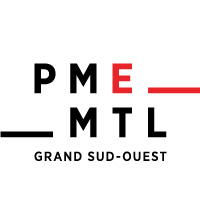The trade show market is enormous! More than 30, 000 such events are held around the world every year, with 4 million companies exhibiting their products and services to 261 million visitors. It wasn’t so very long ago that the market for trade shows was estimated to reach $36 billion by 2023, based on data from the ISI.
However, everything has changed since the start of the COVID-19 pandemic. Trade shows around the world have been cancelled, and there is no indication that business travel among entrepreneurs will be picking up anytime soon. In light of this challenge, what solutions are available for those who wish to sell outside of their local market?
The EffectiV HVAC Approach
Before the pandemic, EffectiV HVAC was expanding into the American market. This Montréal-based company, which sells architectural diffusers, reacted quickly to the cancellation of trade shows, turning instead to an ingenious solution for continuing to make itself known among potential clients: it joined the AIA (American Institute of Architects), a professional association. As a member of the AIA, EffectiV HVAC now organizes webinars, where it can present its products to targeted buyers. Using tools like Zoom, Join.me, GoToWebinar and Teams makes it possible to reach and hold discussions with professionals from a specific sector without having to physically meet with them — something that was not possible 20 years ago.
Presenting Your Offer Without Travel
Joining a professional association is only one of many approaches for overcoming the challenge of not being able to attend trade shows. Some companies opt to outsource their business development to their various markets, sub-contracting sales activities to local stakeholders. Another option is to outsource the generation of “leads” to export promotion organizations (ORPEX) or companies like Go Export or Direct B2B, which focus on developing prospects for their clients. Of course, any solution that involves sub-contracting also involves costs, which must be compared to the internal cost of mobilizing staff to carry out the same task, and result in reduced control of marketing efforts. Outsourcing should be viewed as a diversification of marketing strategy, and for many companies, as a way to accelerate the prospecting and development process (market knowledge, networks, methodology, etc.).
Those who choose to undertake business development on their own may look to the creation of a virtual store, among other solutions. Companies like DIAKSE will create a virtual showroom where you can easily invite prospective buyers, business partners or distributors to discover your company and its products, almost as if they were physically present in your store or factory.
Other companies may opt for targeted marketing tactics on social media platforms, and particularly LinkedIn, where you can carefully select potential clients and contact them directly. The current constraints serve to reinforce the relevance of an occupation that already exists – that of e-sales professional. The required skills are very different from those of a traditional salesperson, because an e-sales professional must master the available technology resources (including social media platforms and videoconference applications), possess online presentation skills and understand how to build interpersonal connections through a view screen, which is not something that everyone can do.
Finally, we mustn’t lose hope in the organization of events where we can get together. A gathering of virtual buyers organized by Investissement Québec and Amazon Canada is expected to take place in September 2020. It will provide a venue where companies from across the country can present their products – without leaving their respective provinces.
Rev up your Zoom and get to selling!
--
This article was written with the help of Xavier Paillon, Director of Market Development at PME MTL.
